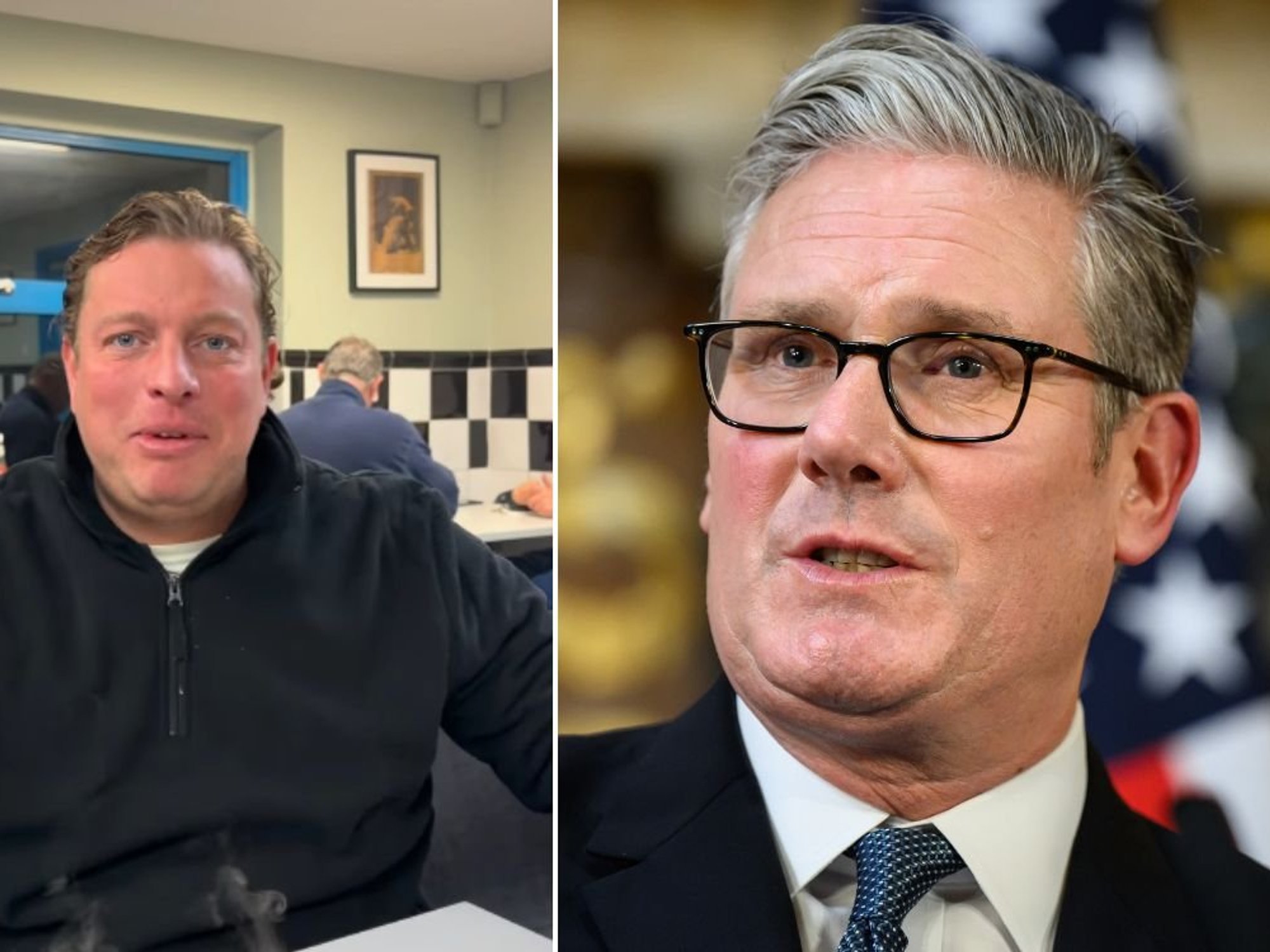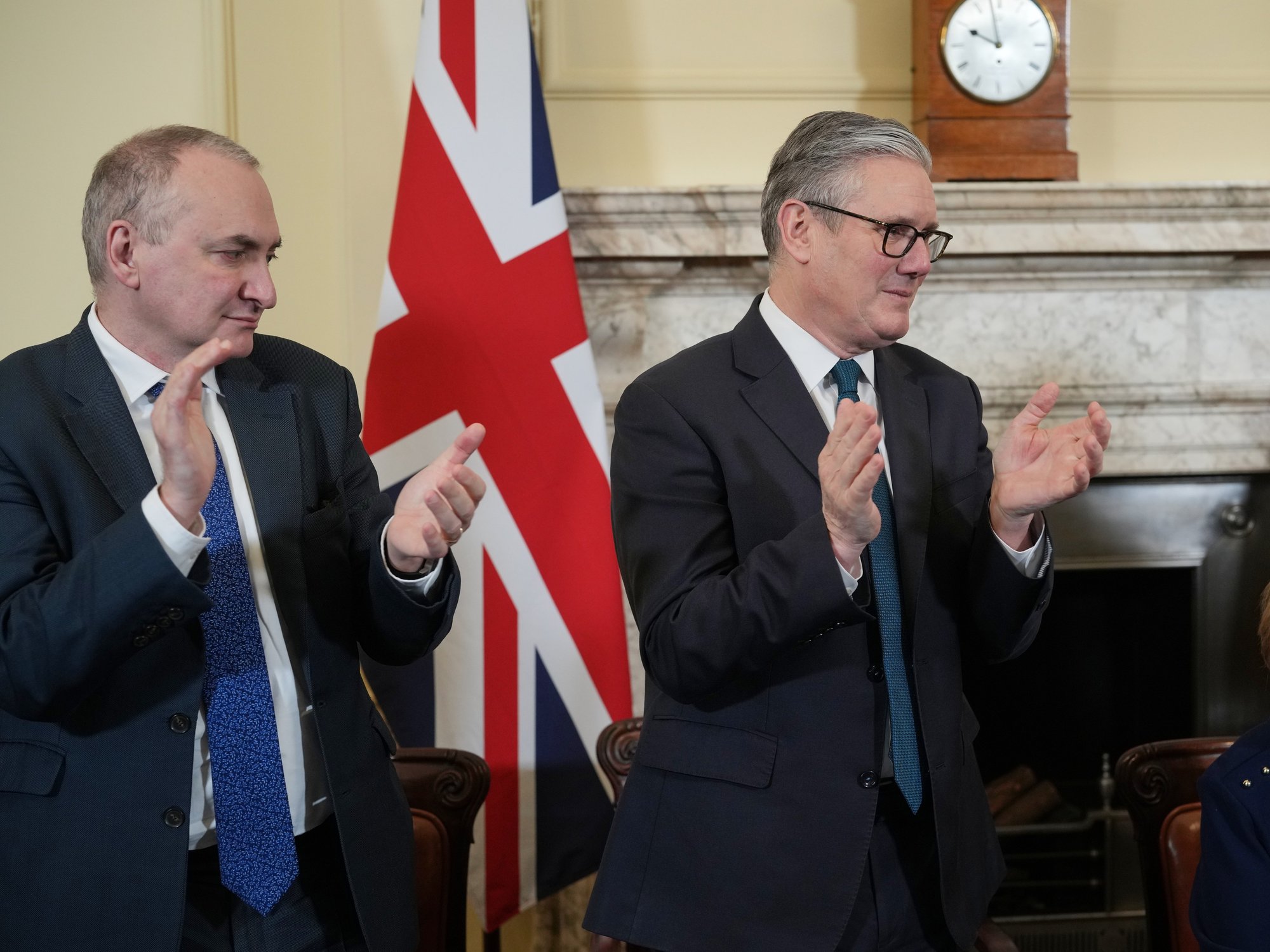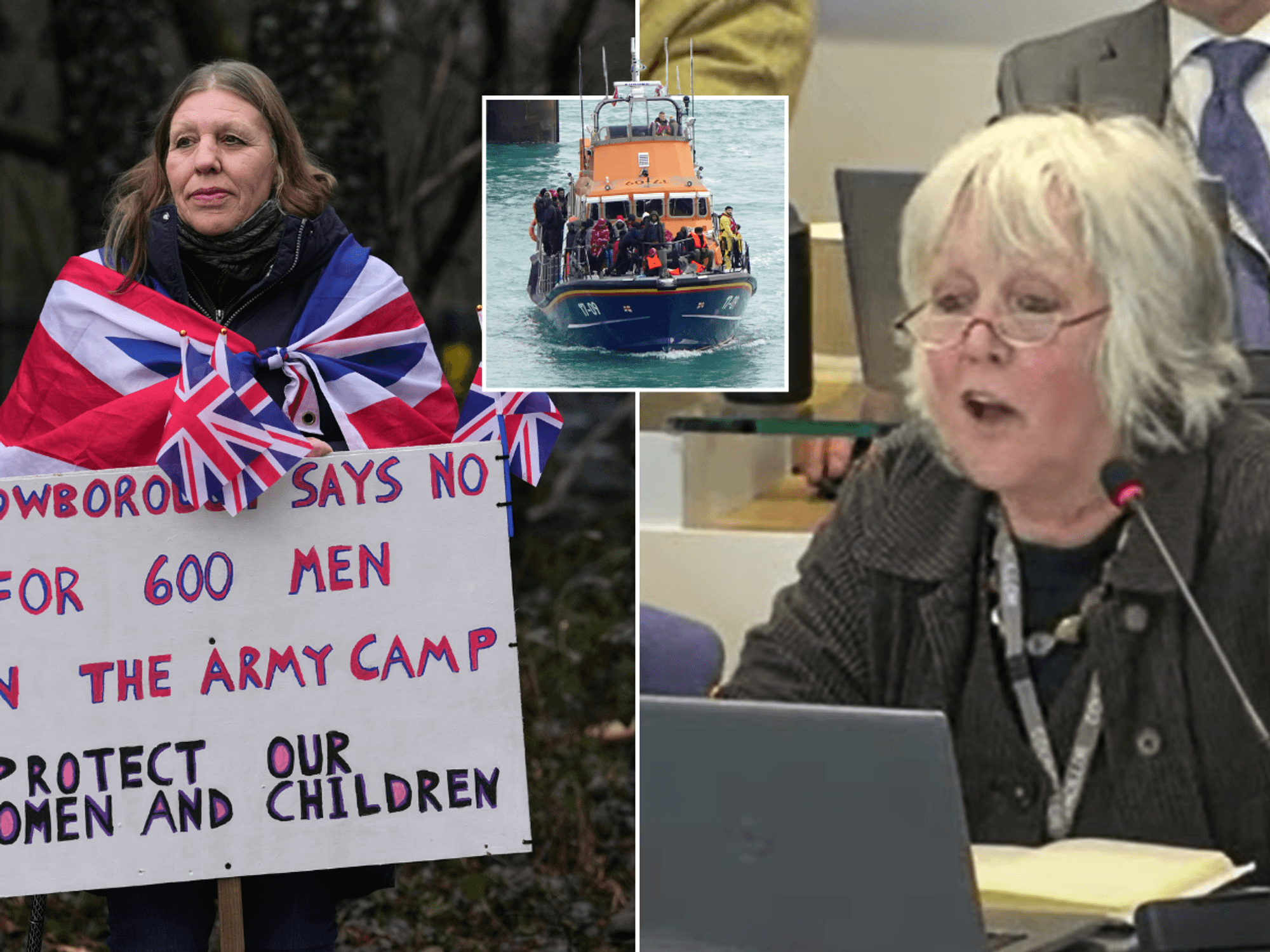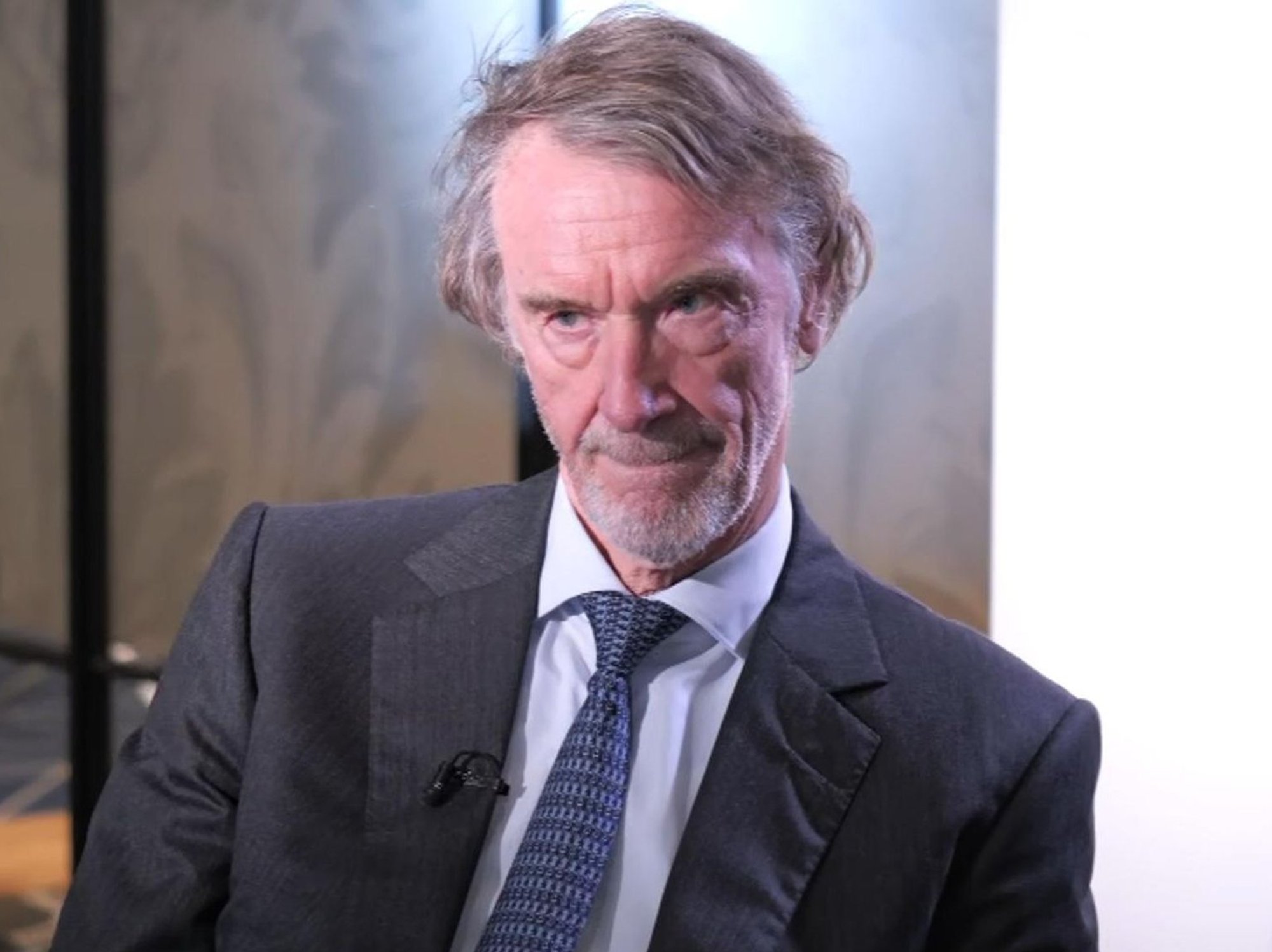A day in the life of a 100-year-old WWII veteran reveals how Britain has lost the fight - Renee Hoenderkamp
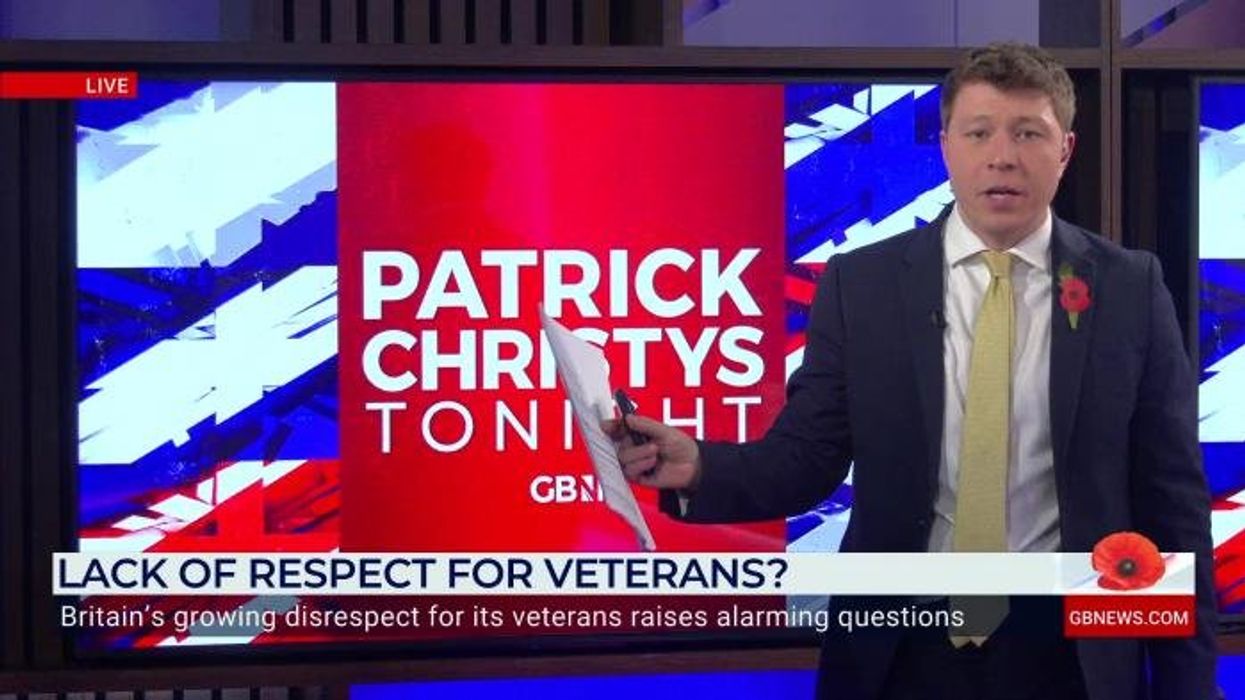
Patrick Christys issues apology to veterans after 'heartbreaking' admission of Alec Penstone |
GB
After a week of Alec Penstone’s words reverberating in my mind, this is how I imagine him feeling, writes presenter and columnist Renee Hoenderkamp
Don't Miss
Most Read
Trending on GB News
I listened with such sadness to Alec Penstone tell us that his sacrifice and those of his comrades were not worth today's Britain. I was then struck by one of my colleagues saying, “We don’t know what Alec doesn’t like, it may be the racism or the move to the right”, and I have been thinking about that.
After a week of Alec’s words reverberating in my mind, this is how I imagine him feeling.
At 102 years old, Alec sits in his small flat, sunlight catching the rows of medals that line his mantelpiece. Once, those medals were the centrepiece of his pride, each one a reminder of courage, service, and unity. Today, they seem to belong to another world. “What’s the point?” he would say. “I don’t recognise this country anymore.”
Alec doesn’t mean that he dislikes everything about modern Britain. He knows that life has improved; the comfort, the technology, the medicine that helps to keep him alive.
Yet comfort has come at a cost. The spirit that built Britain from the rubble of war, thrift, duty, self-discipline, and respect, has been quietly traded for self-indulgence and entitlement, forming a nation unmoored from its own character.
Alec was sixteen when he went to war and twenty-one when he returned. Work, in those days, was the anchor of identity.
A man’s worth lay not in what he owned, but in what he contributed. I can hear him saying, “You worked because that’s what adults did. Even when there was no money in it, there was pride.”
Now, when he watches the news or listens to politicians arguing about benefits, he feels that old ethos has slipped away. More and more people, he believes, expect to take from the communal pot rather than fill it.
“There used to be shame in taking handouts if you didn’t need them,” he would ponder. “Now it’s expected.” Alec does not blame those in genuine need; he remembers ration books and the hunger of post-war years, but he feels the balance has tipped. Hard work has become an option rather than an obligation.
He sometimes talks to young people in the neighbourhood - bright lads with energy to spare but little ambition. “They want the good life straight away,” he says. “Houses, cars, holidays, before they’ve earned them.”
The idea of starting small, of working one’s way up, seems almost alien. To Alec, this is not progress but amnesia: a forgetting of how character is built and the pride in building it.
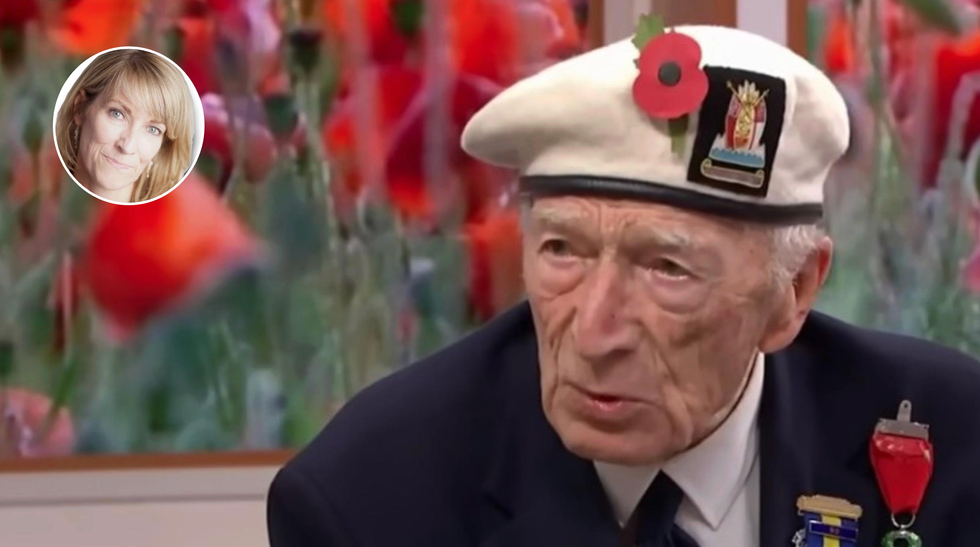
A day in the life of a 100-year-old WWII veteran reveals how Britain has lost the fight - Renee Hoenderkamp
|Getty Images
What troubles him just as deeply is the fading of simple manners. “When I was a boy,” Alec recalls, “you stood up for women, you offered your seat to the elderly, you said ‘please’ and ‘thank you’”. These weren’t formalities but habits of respect, the social oil that kept the gears turning.
Now, when Alec takes the train, he sees young people with feet on seats, eating, music leaking from their headphones. “It’s the indifference that bothers me,” he says. He sometimes tests them, leaning on his stick near the door. Nine times out of ten, no one looks up.
Litter bothers him for the same reason. It’s not the mess, but what it represents: a quiet contempt for the shared world. When he sees takeaway boxes and beer cans scattered under the trees, he shakes his head. “We used to tidy things even when no one was watching,” he says.
“Now people don’t care who’s watching”. For Alec, small acts of neglect symbolise a moral untidiness, a carelessness that has seeped into politics, culture, and daily life.
Alec wonders if the fading of faith has something to do with it all — not faith in a single creed, but the quiet belief that there was once something above us, a moral order that demanded respect and restraint.
Churches once stood at the heart of every town, not just as places of worship but as anchors of conscience. They taught right from wrong in simple, sturdy terms that needed no translation.
As religion has slipped from daily life, so too have the rules that once bound people to something larger than themselves. Without that shared reverence for God, for duty, for one another, Alec feels the country has lost its compass. “When we stopped kneeling to anything higher,” he might say, “we stopped standing tall”.
Alec believes Britain’s greatest post-war achievement was solidarity. The sense that everyone was in it together and that was built and maintained, in a major part, around Christianity.
From the factories to the fields, the nation rebuilt itself through mutual duty, belonging and faith. That unity, he feels, has dissolved into a culture obsessed with the self without the glue that Christianity gave.
“You see the selfishness everywhere,” he says. “The selfies, the slogans, the constant talk of ‘my truth’ and ‘my rights.’ What happened to responsibilities?” To Alec, self-expression has replaced self-restraint, and personal comfort has become the new morality. Even the idea of service, once the highest calling for young men like Alec, now sounds quaint, almost embarrassing.
He is quick to admit that some of the changes have done good. The rigid hierarchies of his youth, the silence around mental illness, the narrow roles for women, all of these, he agrees, needed to go. But he worries that in throwing off old injustices, Britain has also cast away virtues that held people together: patience, gratitude, and the belief that freedom depends on discipline.
Education, too, leaves him puzzled. His grandchildren left school able to recite slogans but unsure how to think critically or write a proper letter. “They teach children what to feel, not how to reason,” he says.
Once, school was about discipline, knowledge, and curiosity; now, he fears, it is about validation. “We’ve replaced rigour with reassurance,” Alec says.
Perhaps the bitterest irony for Alec is that the country he fought for in the name of freedom seems, to his eyes, to be losing it by inches. “We used to speak our minds,” he says. “Now people whisper.” He watches public figures apologise for stray remarks, sees citizens afraid to express honest opinions for fear of online condemnation or bureaucratic reprisal. “It’s not just about politics,” he explains. “It’s about fear that one wrong word could end you.”
To Alec, freedom means the right to disagree politely. He cannot understand how people who once defied bombs and blackouts now surrender their speech to social pressure. “It’s not the Britain we fought for,” he says quietly. “We fought for the right to live honestly.”
The government, he believes, has grown more intrusive while pretending to protect. Every crisis brings new regulations, new surveillance, new justifications.
Alec sees it as a trade: liberty for safety, individuality for control. “We’ve become so afraid of being unsafe that we’ve forgotten what it means to be free.”
Alec knows that every generation looks back with nostalgia, that age magnifies the flaws of the present and softens the memories of the past. Yet, he insists, his disappointment is not mere sentimentality. The changes he mourns are not matters of fashion but of foundation. “Without respect, without duty, without truth,” he says, “a country has no spine”.
He does not wish Britain to return to ration books or rigid roles. He only wishes it would recover its balance; to pair liberty with discipline, progress with gratitude, rights with responsibility.
Alec’s eyes drift back to the medals. He traces one with a finger, the metal cool beneath his skin. “We believed in something bigger than ourselves,” he murmurs. “Now everyone just believes in themselves.”
And for a long time, he sits in silence, a soldier who won the war, yet wonders, in the quiet of old age, whether his country has slowly lost the peace.
Our Standards: The GB News Editorial Charter
More From GB News






